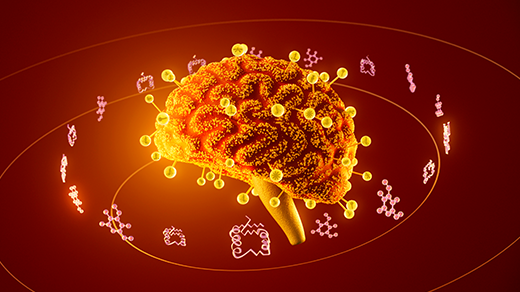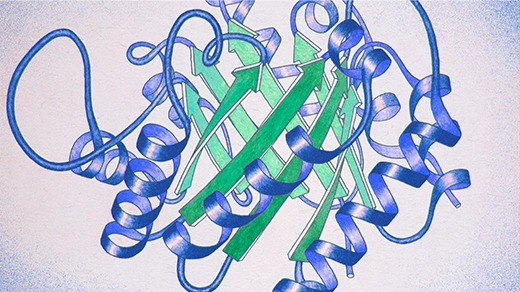What's up in
Proteins
Latest Articles
The Microbial Masters of Earth’s Climate
A collection of short dispatches from the field of climate microbiology conveys the contributions that single-celled life forms make to our climate system, and how we can work with them to address climate change.
Tiny Tubes Reveal Clues to the Evolution of Complex Life
Scientists have identified tubulin structures in primitive Asgard archea that may have been the precursor of our own cellular skeletons.
The Sudden Surges That Forge Evolutionary Trees
An updated evolutionary model shows that living systems evolve in a split-and-hit-the-gas dynamic, where new lineages appear in sudden bursts rather than during a long marathon of gradual changes.
RNA Is the Cell’s Emergency Alert System
How does a cell know when it’s been damaged? A molecular alarm, set off by mutated RNA and colliding ribosomes, signals danger.
The Molecular Bond That Helps Secure Your Memories
How do memories last a lifetime when the molecules that form them turn over within days, weeks or months? An interaction between two proteins points to a molecular basis for memory.
The Poetry Fan Who Taught an LLM to Read and Write DNA
By treating DNA as a language, Brian Hie’s “ChatGPT for genomes” could pick up patterns that humans can’t see, accelerating biological design.
The Year in Biology
Biologists used artificial intelligence to make discoveries about molecules and the brain, and overturned long-held assumptions about the immune system and RNA.
How Colorful Ribbon Diagrams Became the Face of Proteins
Proteins are often visualized as cascades of curled ribbons and twisted strings, which both reveal and conceal the mess of atoms that make up these impossibly complex molecules.
How AI Revolutionized Protein Science, but Didn’t End It
Three years ago, Google’s AlphaFold pulled off the biggest artificial intelligence breakthrough in science to date, accelerating molecular research and kindling deep questions about why we do science.








